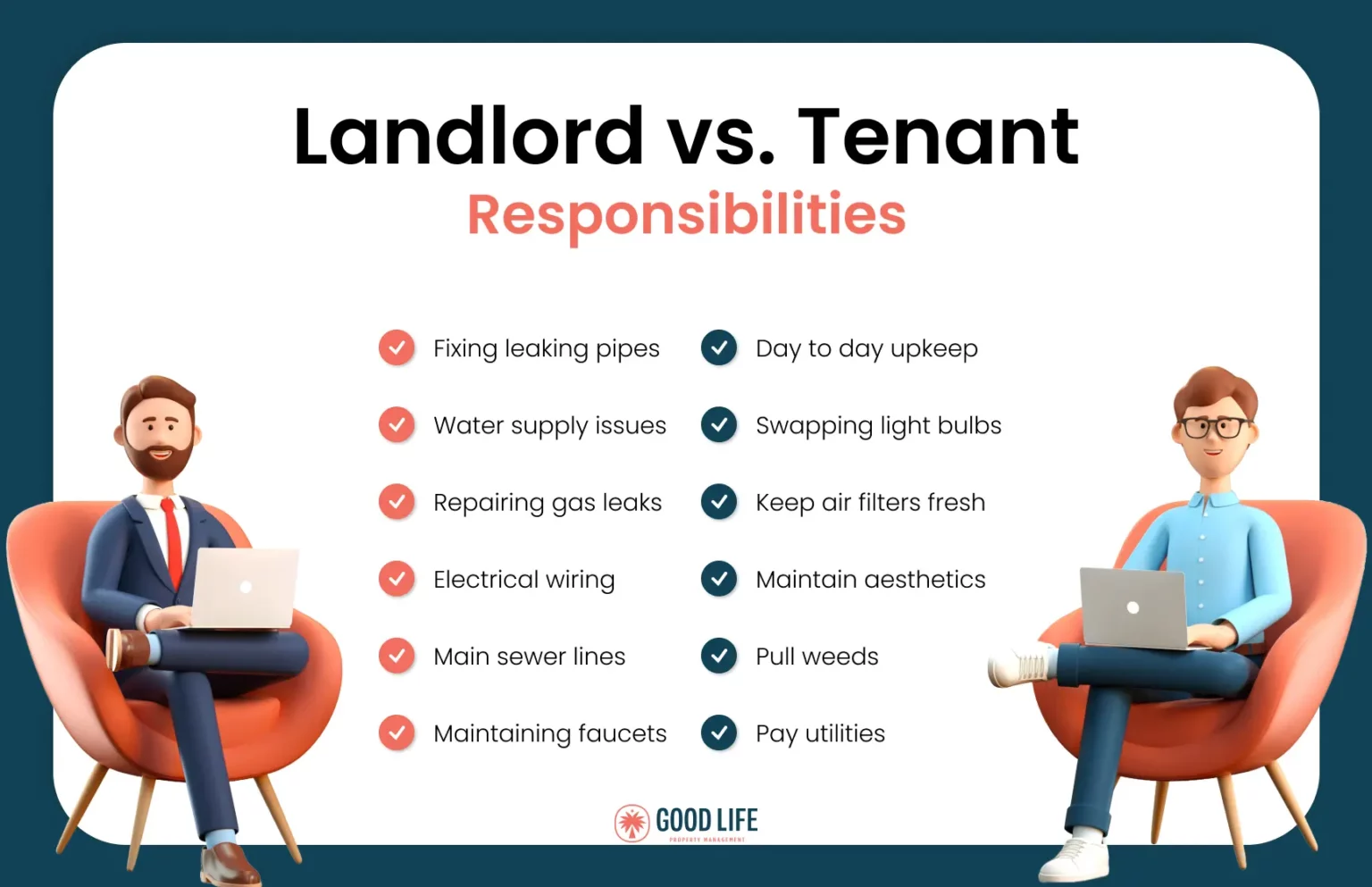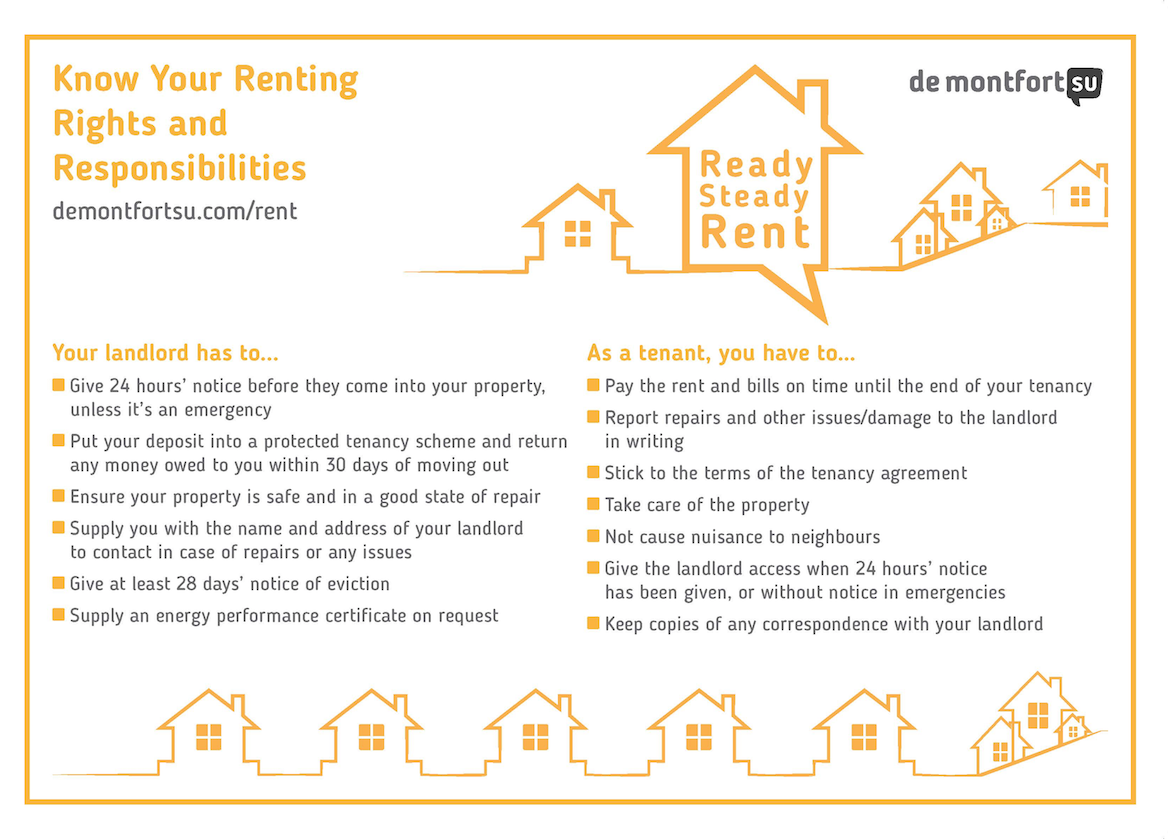Renting a property involves a legal relationship between tenants and landlords, governed by various rights and responsibilities. Understanding these can help tenants protect themselves and ensure a smooth rental experience. This guide covers the key rights and responsibilities of tenants, providing a clear framework for navigating rental agreements and interactions with landlords.
1. Tenant Rights
a. Right to a Habitable Home
- Safe and Sanitary Conditions: Tenants have the right to live in a property that meets basic health and safety standards. This includes functioning plumbing, heating, and electrical systems, as well as proper sanitation.
- Repairs and Maintenance: Landlords are responsible for making necessary repairs to keep the property habitable. Tenants should report issues promptly to ensure they are addressed.
b. Right to Privacy
- Reasonable Notice: Landlords must provide reasonable notice, typically 24 to 48 hours, before entering the rental property, except in emergencies.
- Right to Exclude: Tenants have the right to exclude others from the property, including the landlord, except as allowed by the lease agreement or by law.
c. Right to Fair Treatment
- Non-Discrimination: Tenants have the right to be free from discrimination based on race, color, religion, sex, national origin, familial status, disability, and other protected classes under federal, state, and local fair housing laws.
- Retaliation Protection: Tenants are protected from retaliatory actions by landlords, such as eviction or rent increases, for exercising their legal rights, such as reporting health and safety violations.
d. Right to a Written Lease Agreement
- Clear Terms: Tenants are entitled to a written lease agreement that outlines the terms of the rental, including rent amount, lease duration, responsibilities, and any rules or policies.
- Copy of the Lease: Tenants should receive a copy of the signed lease agreement for their records.
e. Right to Security Deposit Return
- Itemized Deductions: Landlords must provide an itemized list of any deductions from the security deposit for damages or unpaid rent. Tenants have the right to contest unfair deductions.
- Timely Return: Security deposits should be returned within a specified timeframe after the lease ends, as defined by state law.

2. Tenant Responsibilities
a. Paying Rent on Time
- Due Date: Tenants are responsible for paying rent on or before the due date specified in the lease agreement. Late payments may incur additional fees or penalties.
- Full Payment: Rent should be paid in full as agreed in the lease. Partial payments may not be accepted unless arranged with the landlord.
b. Maintaining the Property
- Cleanliness and Care: Tenants should keep the property clean and in good condition. This includes regular cleaning, proper waste disposal, and preventing damage.
- Reporting Issues: Promptly report any maintenance issues or damage to the landlord to prevent further deterioration of the property.
c. Respecting Neighbors and Property Rules
- Noise and Disturbances: Tenants should avoid causing excessive noise or disturbances that could disrupt neighbors.
- Compliance with Rules: Adhere to any rules or policies outlined in the lease agreement, such as pet policies, smoking restrictions, and parking regulations.
d. Proper Use of Fixtures and Appliances
- Responsible Use: Use fixtures, appliances, and systems (e.g., plumbing, heating) as intended and avoid causing damage through misuse or neglect.
- Minor Repairs: Perform minor maintenance tasks as specified in the lease, such as changing light bulbs or batteries in smoke detectors.
e. Giving Notice Before Moving Out
- Notice Period: Provide the landlord with proper notice before moving out, as required by the lease agreement (typically 30 to 60 days).
- Move-Out Inspection: Participate in a move-out inspection with the landlord to document the property’s condition and address any potential issues.

f. Security Deposit Responsibilities
- Leave Property in Good Condition: Ensure the property is left in good condition, similar to its state at move-in, to avoid deductions from the security deposit.
- Forwarding Address: Provide the landlord with a forwarding address for the return of the security deposit and any other correspondence.
3. Handling Disputes and Issues
a. Communication with Landlord
- Open Dialogue: Maintain open and respectful communication with the landlord to address any issues or concerns promptly.
- Written Records: Keep written records of all communications with the landlord, including repair requests, notices, and any agreements made.
b. Understanding Legal Protections
- Tenant Rights Organizations: Seek assistance from tenant rights organizations or legal aid services if you believe your rights are being violated.
- Local Regulations: Familiarize yourself with local tenant protection laws, which may provide additional rights and remedies beyond state and federal laws.
c. Documenting Issues
- Photographs and Videos: Take photographs or videos of the property’s condition at move-in, during tenancy, and at move-out to document any issues or damage.
- Written Notices: Provide written notices for any repair requests or complaints, and keep copies for your records.
d. Escalating Disputes
- Mediation: Consider mediation as a first step to resolving disputes with the landlord. Mediators can help both parties reach a mutually acceptable solution.
- Legal Action: If disputes cannot be resolved through communication or mediation, consider seeking legal advice or taking legal action to protect your rights.
Conclusion
Understanding tenant rights and responsibilities is crucial for maintaining a positive rental experience and protecting oneself in the rental market. Tenants have the right to a safe, habitable, and fair living environment, while also bearing responsibilities such as timely rent payment, property maintenance, and adherence to lease terms. Open communication, documentation, and knowledge of legal protections are essential tools for navigating potential disputes and ensuring a smooth tenancy. By staying informed and proactive, tenants can foster a harmonious relationship with their landlords and enjoy a secure and comfortable rental experience.











